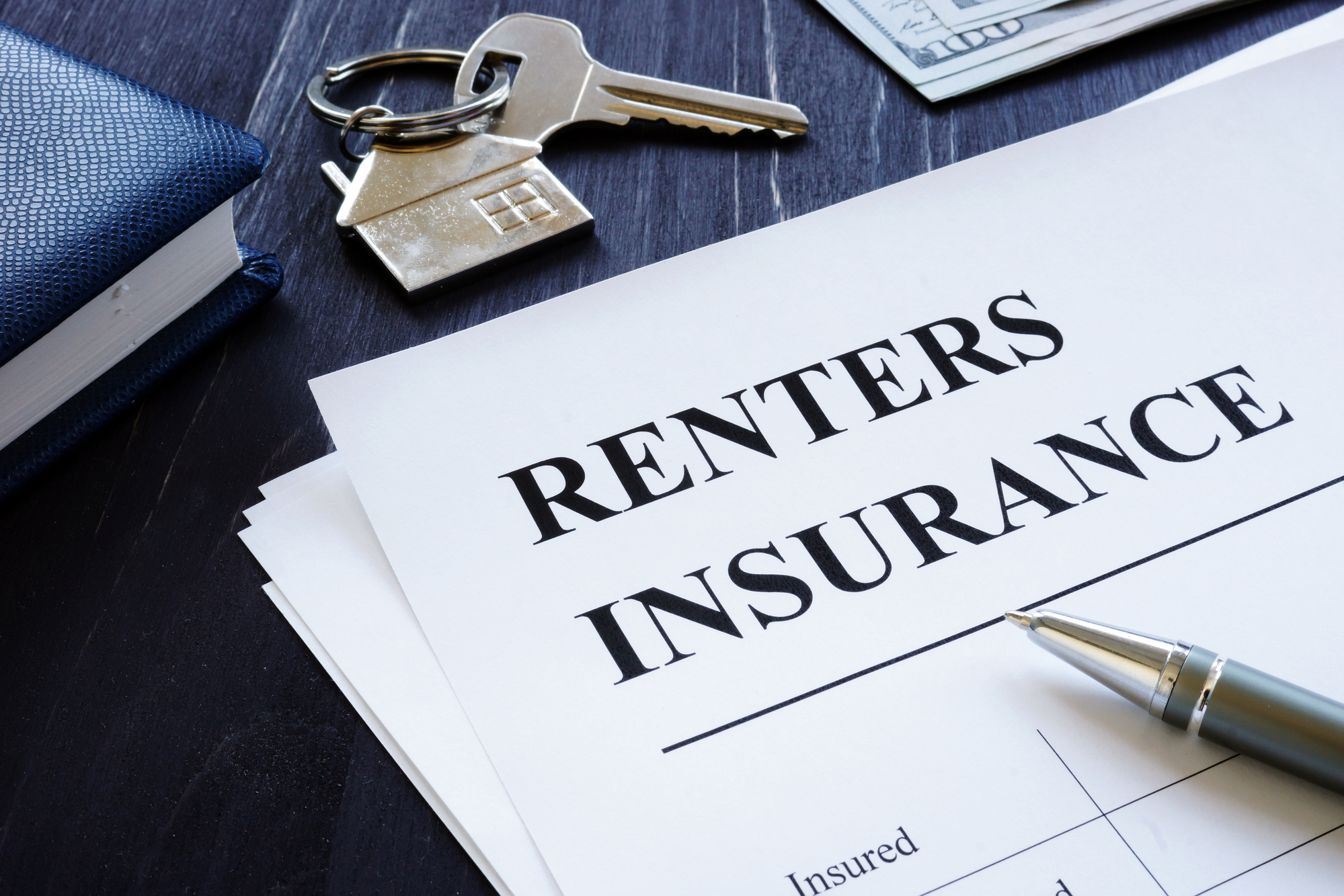Listen to the article
The Different Types of Insurance for Real Estate Investors
Detroit, a city with a fascinating history as the heart of America's automobile industry, is making a comeback that's catching the eye of real estate investors. With plenty of opportunities up for grabs, it's important for potential investors to be well-prepared for any unexpected twists and turns that come with investments.
When it comes to real estate, insurance becomes a vital safety net against unforeseen setbacks. In this informative blog from Own It Detroit, we take a closer look at the different types of insurance that are essential for those considering investing in Detroit's real estate market.
Navigating Detroit's Real Estate Landscape
The Motor City, also known as Detroit, has a rich history marked by both triumphs and challenges. As an investor, it is crucial to approach real estate in this dynamic city with caution and foresight. One of the primary considerations for any real estate investment in Detroit is insurance, which acts as a reliable safety net, providing protection and peace of mind in the face of unexpected challenges such as property damage, liability issues, or unforeseen events.
By carefully evaluating the risks and opportunities, investors can navigate the real estate landscape in Detroit and make informed decisions to maximize their investment potential.
8 Types of Insurance for Detroit Real Estate Investors
Let's discuss the various forms of insurance that are essential for real estate investors in Detroit. These types of coverage protect your investment and are part of any successful real estate investment strategy.
Property Insurance
Property insurance is non-negotiable for any real estate investor. It provides coverage for physical damage to the property structure, protecting the investor from substantial financial losses. In Detroit, where changes in weather and occasional extreme weather events can occur, this type of insurance becomes even more critical. Property insurance policies typically cover damage caused by storms, fire, theft, and other unforeseen incidents.
Additionally, depending on the location and age of the property, investors might want to consider endorsements for additional coverage. For instance, securing flood insurance could be a wise choice in areas prone to flooding. Older rental properties, on the other hand, might benefit from insurance that covers the cost of bringing the property up to code in the event of a significant repair.
Remember that property insurance policies vary in terms of what they cover and their limits. The key is understanding what's included in your policy and ensuring it aligns with your investment strategy and risk tolerance.
Liability Insurance
Liability insurance, another crucial consideration for real estate investors, protects against financial loss resulting from claims of injury or property damage caused by you or your property. It is particularly important for landlords, as it can cover legal and medical costs if a tenant or visitor is injured on your property.
Not having liability coverage could result in significant out-of-pocket expenses, particularly in the event of a lawsuit. Similar to property insurance, you should understand the specifics of your liability policy to ensure it adequately covers your potential risks. For example, if you're renting out properties on a short-term basis, like through Airbnb, you might require more comprehensive coverage than if you have long-term tenants.
Landlord Insurance
Landlord insurance is a specific type of property insurance designed for those who rent out their property to tenants. While it typically includes property and liability insurance, it also covers unique scenarios related to rental activities. For example, if a fire renders your rental property uninhabitable, landlord insurance can cover the loss of rental income during the repair period.
Many policies also include coverage for legal expenses in case of a dispute with a tenant.
In Detroit's dynamic rental market, landlord insurance offers extra protection for real estate investors. Not only does it provide coverage for the physical property, but it also accounts for the risks associated with leasing. As with all insurance types, read the policy carefully and ensure it provides sufficient coverage for your specific situation and investment strategy.
Flood Insurance
Detroit's geographical location near the Great Lakes makes it susceptible to flooding, especially during heavy rainfall or sudden snowmelt. Flood insurance, therefore, becomes an essential consideration for real estate investors in the city.
Unlike standard property insurance, flood insurance covers damages caused by floodwater. This can include structural damage to the property, replacement of electrical and plumbing systems, removal of debris, and even compensation for personal belongings damaged by floodwater.
It's worth noting that there's typically a 30-day waiting period from the date of purchase before your policy goes into effect. Therefore, it's best not to delay securing a flood insurance policy if your property is in a flood-prone area.
Title Insurance
Title insurance is a vital protective measure for real estate investors in Detroit. This type of insurance shields the property owner and their lender from potential losses related to disputes over the property title.
These disputes can arise due to various reasons such as unpaid taxes, liens, or even fraud related to the property's ownership history. Title insurance is typically purchased at the time of closing on a property. It protects if the buyer (or their heirs) owns the property.
Title insurance provides peace of mind that you are safeguarded against potential legal and financial issues from undiscovered or undisclosed problems with the property title.
Builder's Risk Insurance
Builder's Risk Insurance is a specialized type of property insurance that covers damages to buildings while they are under construction or renovation. This insurance can offer valuable protection for real estate investors in Detroit considering investing in new builds or planning substantial refurbishments.
This insurance policy typically covers damage from events like fire, vandalism, or severe weather. It's important to note that it does not cover accidents and injuries at the construction site or damages post-construction. Given the potential risks associated with construction projects, and the substantial investment they often represent, Builder's Risk Insurance can be a practical addition to any real estate investor's coverage portfolio.
Vacant Property Insurance
Vacant Property Insurance is a specialized insurance type that is especially beneficial for real estate investors who might have unoccupied property for an extended period. Vacant rental properties are often at a higher risk of vandalism, theft, or weather-related damages, and they might not be adequately covered by standard property insurance.
This insurance provides coverage for any damages that occur when your property is vacant for a specific period, typically more than 30 days. Coverage can include damages from fire, theft, liability, and some weather-related damages. It's crucial to understand that each policy has its specificities, and investors need to ensure that the coverage aligns with their requirements.
In Detroit's diverse real estate landscape, having Vacant Property Insurance can provide financial protection and peace of mind, especially when transitioning between tenants or during substantial renovations.
Umbrella Insurance
Umbrella insurance is an extra liability insurance coverage that goes beyond the limits of the insured's home, auto, or other standard insurance. It provides an additional layer of security to those who are at risk of being sued for damages to other people's property or injuries caused to others in an accident. For real estate investors in Detroit, this type of insurance can provide significant protection from major claims and lawsuits.
Umbrella insurance typically kicks in when the liability on your other policies has been exhausted. This insurance can cover not only the policyholder but also other members of their household. It also covers a variety of incidents, including certain lawsuits, property damage, injuries, and related legal costs.
Partnering with Professionals
For those interested in exploring Detroit's rental property market, partnering with seasoned professionals, like a Detroit property management company, is invaluable. When navigating the nuances of Detroit's real estate landscape, Own It Detroit truly stands out as an exceptional agency.
With their extensive expertise and in-depth knowledge, they ensure that investments not only hold great promise but are also safeguarded against any unforeseen challenges that may arise. By working with Own It Detroit, you can have peace of mind knowing that you have a trusted partner by your side, guiding you every step of the way in your property ventures.
Learn How to Invest in Real Estate With Detroit Property Managers
As Detroit undergoes a revitalization, real estate investors have a unique opportunity to be part of its resurgence. However, the key to success lies in thorough preparation, and insurance is a cornerstone of that preparation. By understanding and securing the right types of insurance, investors can mitigate risks and ensure the longevity of their investments in Detroit's evolving real estate market.
For more information about investing in Detroit real estate, download our free resource, How to Invest In Real Estate: A Guide.







